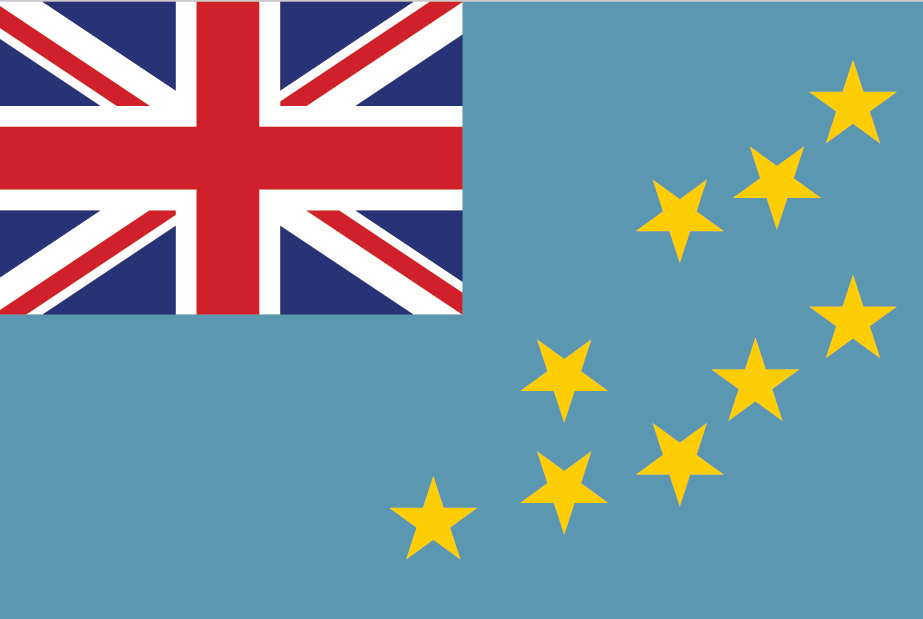
Sustainability Efforts
Country: Tuvalu
Explore sustainability efforts in Tuvalu. The United States Environmental Protection Agency (“EPA”) said it well when they state:
“Sustainability is based on a simple principle: Everything that we need for our survival and well-being depends, either directly or indirectly, on our natural environment. To pursue sustainability is to create and maintain the conditions under which humans and nature can exist in productive harmony to support present and future generations.”
About Tuvalu
Tuvalu, a small island nation in the Pacific Ocean, is known for its stunning coral atolls, turquoise waters, and white sandy beaches. It faces challenges from climate change and rising sea levels, which threaten its very existence. Tuvaluans have a strong connection to their culture, including traditional music, dance, and handicrafts. The country advocates for global action on climate change and sustainable development. Tuvalu’s unique beauty and the resilience of its people make it a symbol of the vulnerability of small island nations. Sustainability efforts in Tuvalu will enhance the country’s future.
Sustainability Efforts
Toggle each button below to “open” and “close” the presented data.

1. Poverty: In Tuvalu, the government and international organizations are working together to address poverty and improve the well-being of the population. Social welfare programs, financial assistance, and job creation initiatives have been implemented to reduce poverty levels. However, specific poverty statistics for Tuvalu are not readily available.

2. Hunger: Tuvalu faces challenges related to food security due to its remote location and limited agricultural land. Efforts are being made to improve food production and distribution systems, enhance agricultural practices, and promote sustainable fishing methods. The government, in collaboration with international partners, is working towards achieving food self-sufficiency and reducing hunger in the country.

3. Healthcare: Tuvalu is striving to enhance healthcare services and ensure access to quality medical care. The government, with the support of international aid, is improving healthcare infrastructure, including hospitals and clinics, and expanding the availability of essential medicines and treatments. Efforts are also being made to strengthen primary healthcare services and promote public health initiatives.

4. Education: Education is a priority in Tuvalu, and the government is taking steps to improve educational opportunities for its citizens. Investments are being made to enhance school facilities, provide teacher training programs, and develop relevant and inclusive curricula. Tuvalu has achieved high enrollment rates in primary and secondary education, with a focus on quality education and skills development.

5. Gender Equality: Tuvalu is committed to promoting gender equality and women's empowerment. The government has implemented policies and programs to address gender-based discrimination, improve women's access to education and healthcare, and promote women's participation in decision-making processes. Efforts are also being made to raise awareness about gender equality and combat gender-based violence.

6. Clean Water Sanitation: Tuvalu recognizes the importance of clean water and sanitation for public health. The government, in collaboration with international partners, has implemented projects to improve access to clean drinking water and proper sanitation facilities. Efforts are being made to develop sustainable water management systems, including rainwater harvesting and wastewater treatment.

7. Affordable Clean Energy: Given its limited fossil fuel resources and vulnerability to climate change, Tuvalu is actively pursuing affordable clean energy solutions. The government is promoting renewable energy sources such as solar power and has implemented projects to increase energy efficiency and reduce reliance on imported fossil fuels. These initiatives aim to provide affordable and sustainable energy for the population.

8. Economic Growth: Tuvalu faces economic challenges due to its small size and geographical limitations. Efforts are being made to promote economic growth through initiatives such as sustainable tourism, fisheries development, and support for small businesses. The government is working towards diversifying the economy and creating employment opportunities for the local population.

9. Industry Innovation: Tuvalu's limited industrial sector poses challenges for industry innovation. However, the government is exploring opportunities for innovation in sectors such as renewable energy, sustainable agriculture, and eco-tourism. Collaborative partnerships with international organizations and knowledge sharing play a vital role in fostering industry innovation in Tuvalu.

10. Reduced Inequalities: Tuvalu recognizes the importance of reducing inequalities and promoting social inclusivity. The government is implementing policies and programs to address income disparities, improve access to basic services, and support marginalized and vulnerable groups. Efforts are being made to ensure equal opportunities for all Tuvaluans, regardless of their social or economic background.

11. Sustainable Cities: As a small island nation, Tuvalu is striving towards sustainable urban development. Efforts are being made to promote environmentally friendly transportation, improve waste management systems, and enhance the resilience of urban infrastructure to climate change impacts. The government is working towards creating sustainable and livable cities for its population.

12. Responsible Consumption and Production: Tuvalu recognizes the importance of responsible consumption and production patterns for sustainable development. Efforts are being made to raise awareness about sustainable practices, promote waste reduction and recycling, and encourage responsible resource management. The government is actively supporting initiatives that promote environmentally conscious consumption and production.

13. Climate Action: Tuvalu is highly vulnerable to the impacts of climate change, including sea-level rise and extreme weather events. The government is actively involved in international climate negotiations, advocating for ambitious emission reduction targets and climate adaptation measures. Tuvalu promotes sustainable land use practices, ecosystem conservation, and the use of renewable energy to mitigate climate change impacts.

14. Aquatic Environment: As a Pacific Island nation, Tuvalu places significant importance on the preservation of its aquatic environment. Efforts are being made to protect marine ecosystems, regulate fishing activities, and conserve biodiversity. The government collaborates with local communities and international partners to ensure the sustainable management of marine resources and the preservation of the aquatic environment.

15. Natural Environment: Tuvalu recognizes the value of its natural environment and the need for its conservation. The government has established protected areas, including marine reserves and terrestrial parks, to safeguard unique ecosystems and biodiversity. Efforts are being made to promote sustainable land use practices, protect forests, and preserve native species through conservation programs and public awareness campaigns.

16. Peace and Justice Institutions: Tuvalu maintains peace and justice institutions to ensure social stability and uphold the rule of law. The government works towards maintaining a peaceful society, protecting human rights, and promoting social justice. The judiciary operates independently, ensuring fair and impartial justice for all citizens.

17. Partnerships for the Goals: Tuvalu recognizes the importance of partnerships in achieving sustainable development goals. The government collaborates with international organizations, donor countries, and civil society to mobilize resources, share knowledge, and implement sustainable development projects. These partnerships aim to address various challenges, promote capacity-building, and work towards achieving shared goals for Tuvalu's sustainable future.



